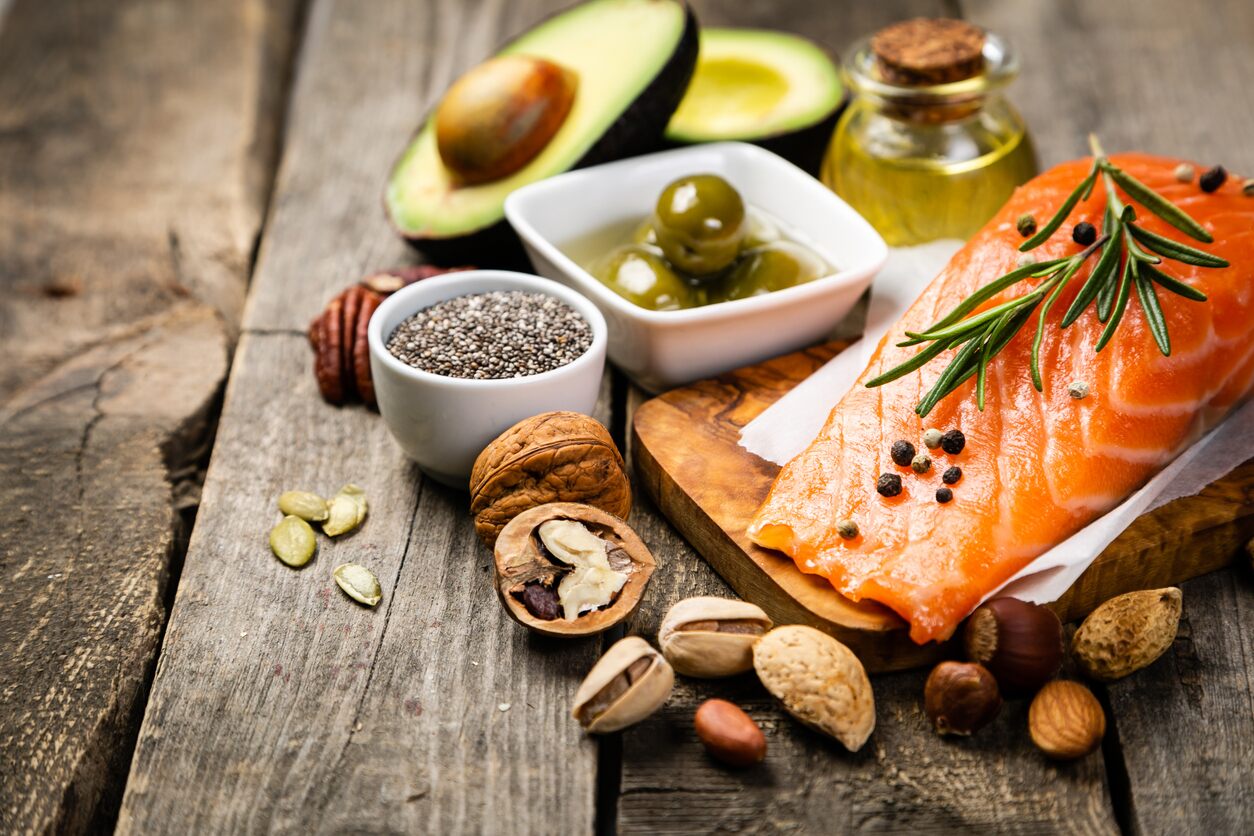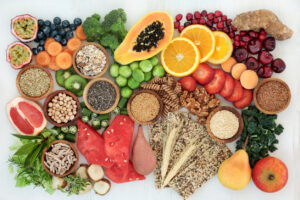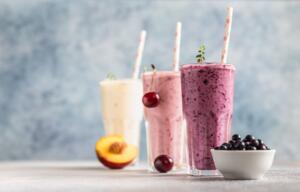Inflammation is the body’s natural reaction against infection or injury. It’s caused by a wide range of issues, including rheumatoid arthritis, autoimmune diseases, or even bug bites and stings. Chronic inflammation can even lead to serious illnesses such as heart disease. If you suffer from chronic inflammation, it’s important to try out anti-inflammatory diets.
When it comes to living a healthy life, eating a diet that reduces inflammation will help you feel better and stay healthier as you get older. Here we’ll take a look at the best anti-inflammatory diets and the healthy foods at their core.
Best Foods to Fight Inflammation
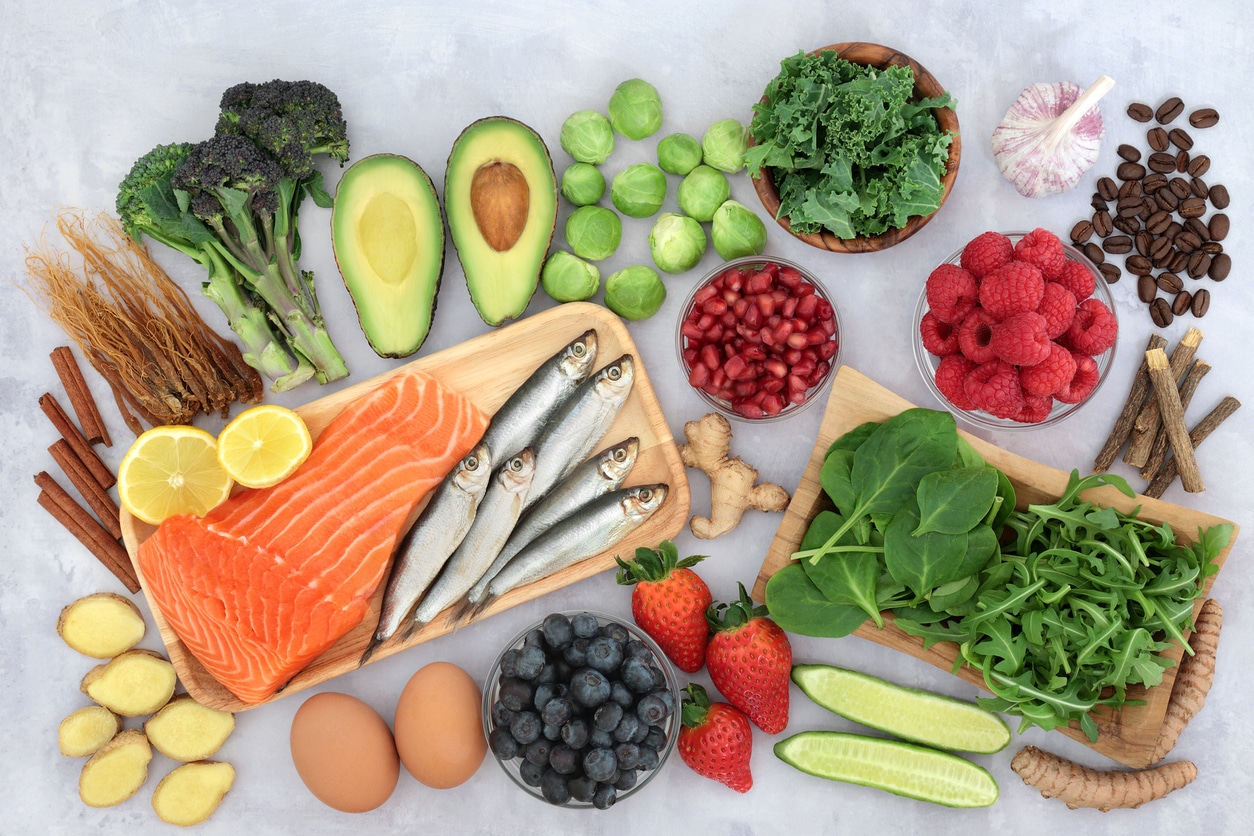
When it comes to anti-inflammatory foods, you’ll find that they follow common trends in other health diets. This includes eating lots of nutrient-dense foods while reducing your consumption of processed foods or refined sugars. Here are some of the top foods to consume if you’re trying to fight inflammation:
- Fatty fish
- Dark chocolate
- Avocados
- Eggs
- Broccoli and cauliflower
- Sweet potatoes
- Spinach
- Artichokes
- Kale
- Collard greens
- Blueberries
- Blackberries
- Raspberries
- Cherries
- Apples
If you think you’ve seen this eating style before, you’re not wrong. Many of these foods are included in all of the diets on this list, with some adjustments and exceptions.
Mediterranean diet
The Mediterranean diet has long been synonymous with healthy eating and weight loss. That’s because it includes many of the items listed under our best anti-inflammatory foods list. This diet typically consists of fruits, vegetables, fatty fish, whole grains, olive oils, nuts, and seeds.
People living around the Mediterranean Sea have followed this diet for many years, opening up the eating plan to nutritional and dietary studies – especially in comparison to people who follow a Western diet. It’s been shown to protect against diseases typically linked to inflammation, from type 2 diabetes to cardiovascular disease.
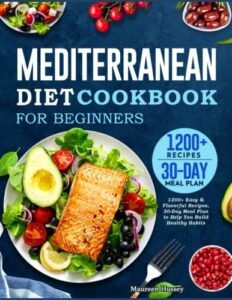
Dr. Andrew Weil’s Anti-Inflammatory Diet
Many years ago, integrated medicine doctor Dr. Andrew Weil began researching the importance of anti-inflammatory measures and how they can impact and improve your health. His diet layout is somewhat comparable to the Mediterranean diet, including lots of fatty fish, vegetables, fruits, nuts, seeds, and olive oil.
However, his diet includes Asian influences that add additional health benefits, and it also emphasizes healthy proteins and plant-based foods that help fight inflammation. As with all diets related to anti-inflammatory measures, Dr. Weil restricts the intake of processed foods. With this diet, you should expect to get about 40-50% of your calories from carbohydrates, 30% from fat, and roughly 20-40% from protein.
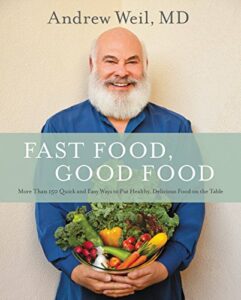
Intermittent Fasting
Experts have long associated eating too much and too often with an increase in inflammation. That’s where intermittent fasting comes into play as far as anti-inflammatory diets. According to cell.com, “Caloric restriction is known to improve inflammatory and autoimmune diseases.” The basis of intermittent fasting is to limit your eating window and reduce calories – and to get those calories from healthier food sources. Therefore, this eating style is making strides in the fight to reduce inflammation.
If you’re interested in intermittent fasting but don’t want to add one more to-do to your daily routine, consider trying out Prime Women’s Plate app. It was specifically designed for women over 50, and it encourages more protein, adequate nutrient-rich vegetables, minimal fruits, healthy fats, additional calcium, and a drastic reduction in sugar intake. The app also lets you set meal times, so you’ll get reminders when it’s your eating window. It takes out all the guesswork!
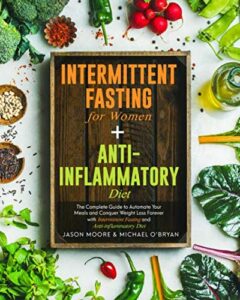
Keto Diet
The keto diet has been trending in the last few years because of its wide range of health benefits. By following the keto diet, you put your body into a state of ketosis: a metabolic state in which your body burns fat and ketones as its primary fuel source rather than glucose (sugar). You do this by getting most of your calories from proteins and fats while limiting the calories you get from carbohydrates. This means cutting back on sugary foods and white bread.
On the keto diet, you limit the number of carbs you ingest in a day to fewer than 50, reducing the blood sugar that your body typically uses for fuel. At this rate, your body eventually runs out (typically 3-4 days), and you’ll start to break down protein and fat for energy instead. Once this happens, you might begin to lose weight, which is one of the main reasons this diet became such a large trend.
However, ketosis also activates the AMPK pathway (activated protein kinase), which assists in regulating energy and inhibiting the inflammatory Nf-kB pathways. This is where the reduction in inflammation comes into play. The keto diet is highly regarded for reducing inflammation and helping with other chronic diseases.
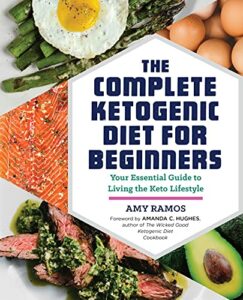
DASH Diet
The DASH Diet (Dietary Approaches to Stop Hypertension) was initially developed as a way to lower blood pressure without medicinal intervention. It encourages eating a diet low in sodium and high in calcium, magnesium, fiber, and potassium. Regardless of its original intent, the basic makeup of the diet is so healthy it’s now recognized as being an overall nutritious style of eating, regardless of health history.
You won’t be surprised to hear the foods included in the diet; they’re quite similar to other anti-inflammatory diets on this list (do you see a pattern here?). So, let’s start with what you should limit with this diet: sweets, sugary drinks, and red meat. Instead, you should eat lots of fish, poultry, low-fat dairy, nuts, whole grains, vegetables, and fruits. Basically, look for naturally-made foods that are low in total fat, cholesterol, and saturated fat.
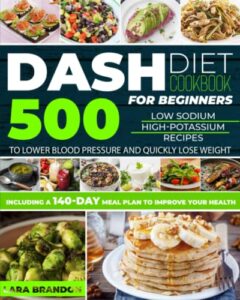
Conclusion
There are a lot of healthy foods and diet plans available to try out and see which is best for you. One big bonus of the diets we have listed here is that they aren’t terribly restrictive, and the foods that you are supposed to eat (and not eat) aren’t going to surprise you.
If you don’t want to follow a specific diet plan but are looking to reduce inflammation, simply cut out highly processed foods and products high in sugar. Indulge in more fatty fish, fruits, and vegetables. If you want a snack, grab a handful of healthy seeds or nuts. And if your sweet tooth is calling out for attention, go ahead and eat some dark chocolate.
When we lay it out like that, reducing inflammation doesn’t sound so hard after all, does it?
Read Next:
7 Reasons to Join Portion Control PLATE Now!

